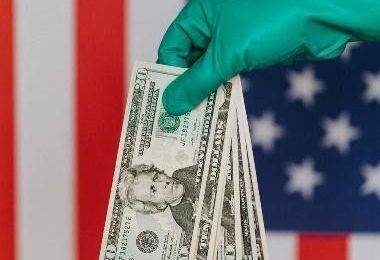It’s no secret that medical debt is a tremendous source of stress for countless Americans. Just the prospect of receiving enormous bills is enough to prevent many of us from seeking out care for which we have an immediate need. While there’s no denying that our country’s healthcare system is in need of massive reform, this doesn’t mean you should simply resign yourself to unreasonable medical costs. As you’ll find, preventing yourself from becoming overwhelmed by medical debt is much easier than you may realize.
Find a Suitable Insurance Plan
There’s no question that health insurance can be pricey. Depending on the level of coverage you’re looking for, you may wind up paying more than you can comfortably afford each month. Fortunately, with the passage of the Affordable Care Act (a.k.a. Obamacare) finding affordable coverage is no longer as frustratingly difficult as it once was. Obamacare effectively provides millions of Americans with subsidies on a sliding scale, meaning plans that were once out of your price range may now be comfortably affordable. So, if you’re currently on the hunt for decent coverage at agreeable prices, pay a visit to Healthcare.gov and have a look at the various plans for which you qualify. You may even discover that some of these plans are free, although this is heavily dependent on your income level.
Depending on your financial situation, you may also want to consider applying for Medicaid, America’s public healthcare insurance program for low-income individuals. Medicaid covers a broad assortment of healthcare-related expenses and provides essential coverage to millions of financially-strapped Americans. Since the criteria for qualification vary from state to state, you should visit your state’s Medicaid website if you’re unclear on whether or not you qualify.
If you’ve never applied for Medicaid and aren’t sure how to handle the application process, reach out to a representative at your local welfare office. In addition to helping you determine your eligibility, they’ll be happy to assist you in submitting your application. You may even come to find that you qualify for additional forms of federal assistance.
Ask Healthcare Providers About Financial Aid Options
Although a significant number of healthcare providers offer financial aid options to low-income patients, many people who stand to benefit from them are completely unaware of their existence. This is largely due to the fact that providers don’t often advertise these programs. In fact, if you aren’t the one to raise the topic, you shouldn’t assume that doctors, nurses or receptionists will bring it up. So, if you’re curious about whether your preferred provider offers financial aid, explore their website and/or contact them directly and make the appropriate inquiries.
In many cases, the amount of financial aid you’ll receive depends on your income level, insurance situation and overall savings. Some individuals may even receive full-on debt forgiveness – which is not only good for future medical expenses, but can also be retroactively applied to any outstanding bills.
Don’t Dismiss the Importance of Preventative Care
Prioritizing preventative care can be a boon to your money-saving efforts. Preventative care helps ensure that potentially serious issues are caught in an expedient manner and treated before they’re able to become scarier, costlier affairs. Additionally, a big part of preventative care is seeing your doctor at least once a year and remaining in regular contract with them. You may not relish spending money on doctor visits, but spending a little bit now is preferable to incurring insurmountable medical debt over the long term.
Anyone who’s currently without a general practitioner (GP) is urged to find one at their earliest convenience. Ohioans in need of general family medical practice Rookwood won’t have to look far to find an assortment of accommodating options.

In a country with a profit-based healthcare system, there’s little wonder as to why medical debt has proven financially ruinous to so many Americans. Even a single medical bill stands to bleed your finances dry if you’re uninsured or simply lack the right type of coverage. Of course, this doesn’t mean you should just sit back and allow medical debt to consume you. Taking the measures discussed above can help you keep medical debt in check and get the care you need without worrying about the cost.
My name is Sardar Ayaz a professional content writer and SEO expert having Proven record of excellent writing demonstrated in a professional portfolio Impeccable grasp of the English language, including idioms and current trends in slang and expressions. I have ability to work independently with little or no daily supervision with strong interpersonal skills and willingness to communicate with clients, colleagues, and management.
I can produce well-researched content for publication online and in print, organize writing schedules to complete drafts of content or finished projects within deadlines. I have 12 years’ experience to develop related content for multiple platforms, such as websites, email marketing, product descriptions, videos, and blogs.
I use search engine optimization (SEO) strategies in writing to maximize the online visibility of a website in search results











